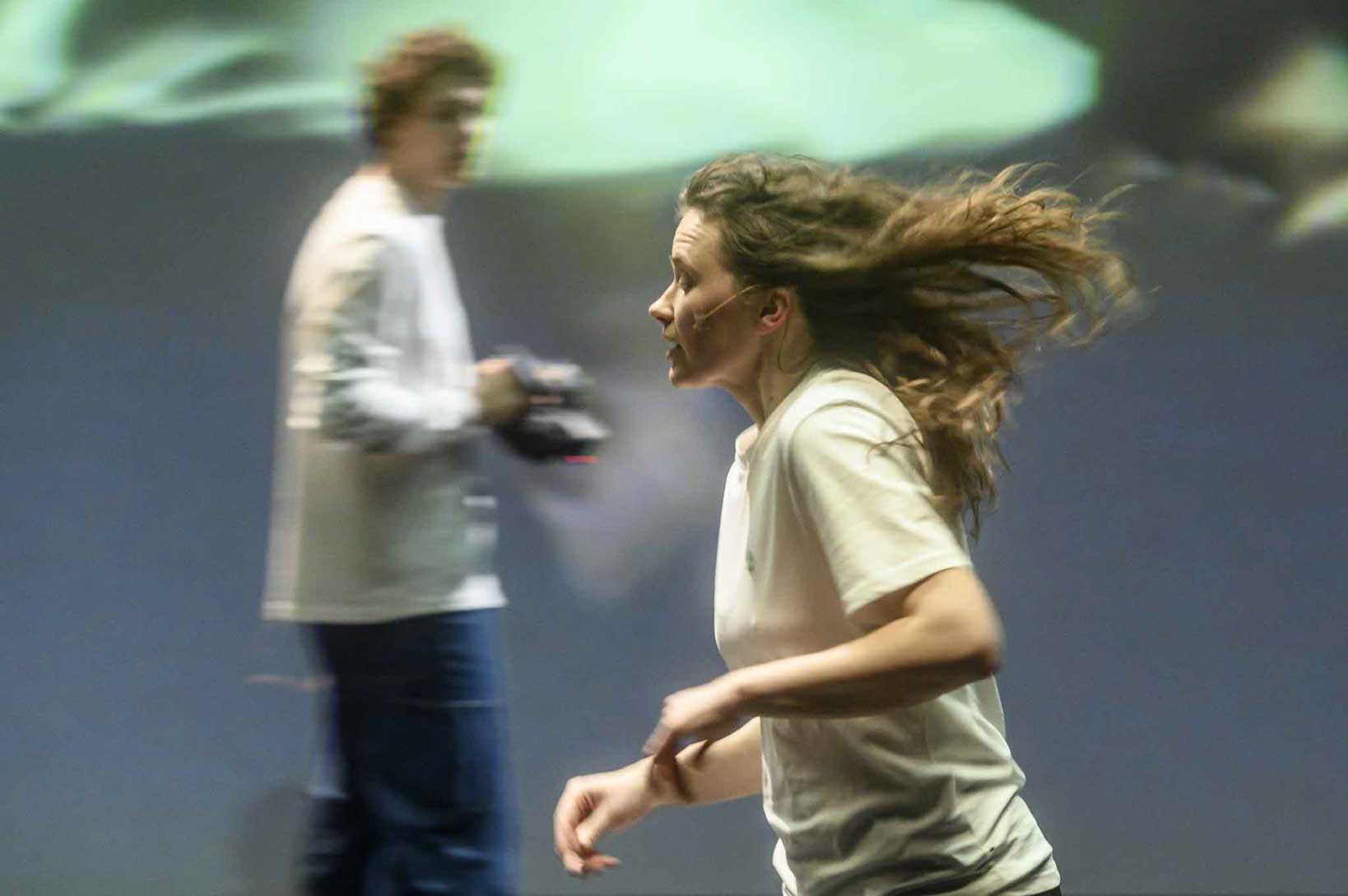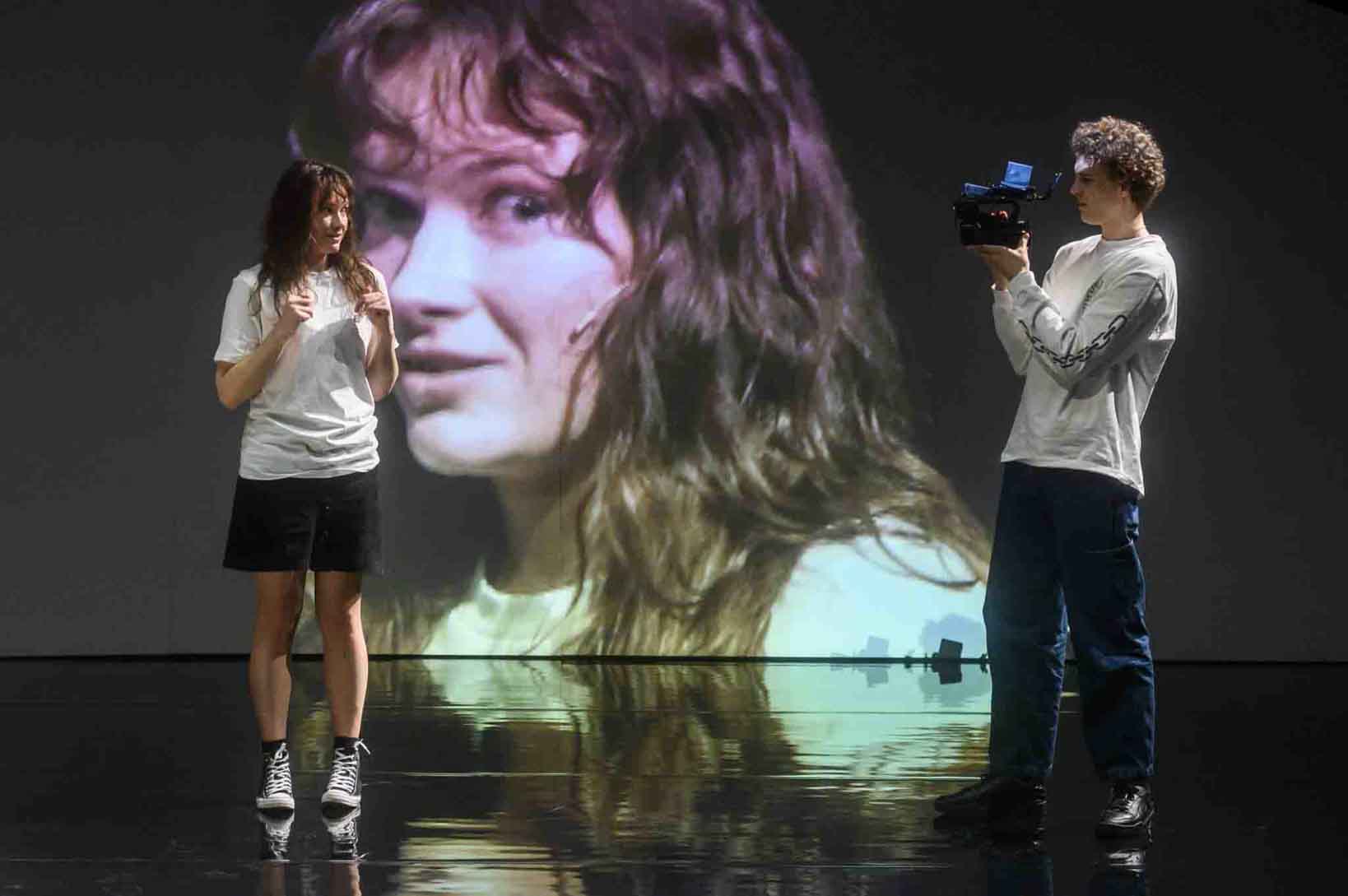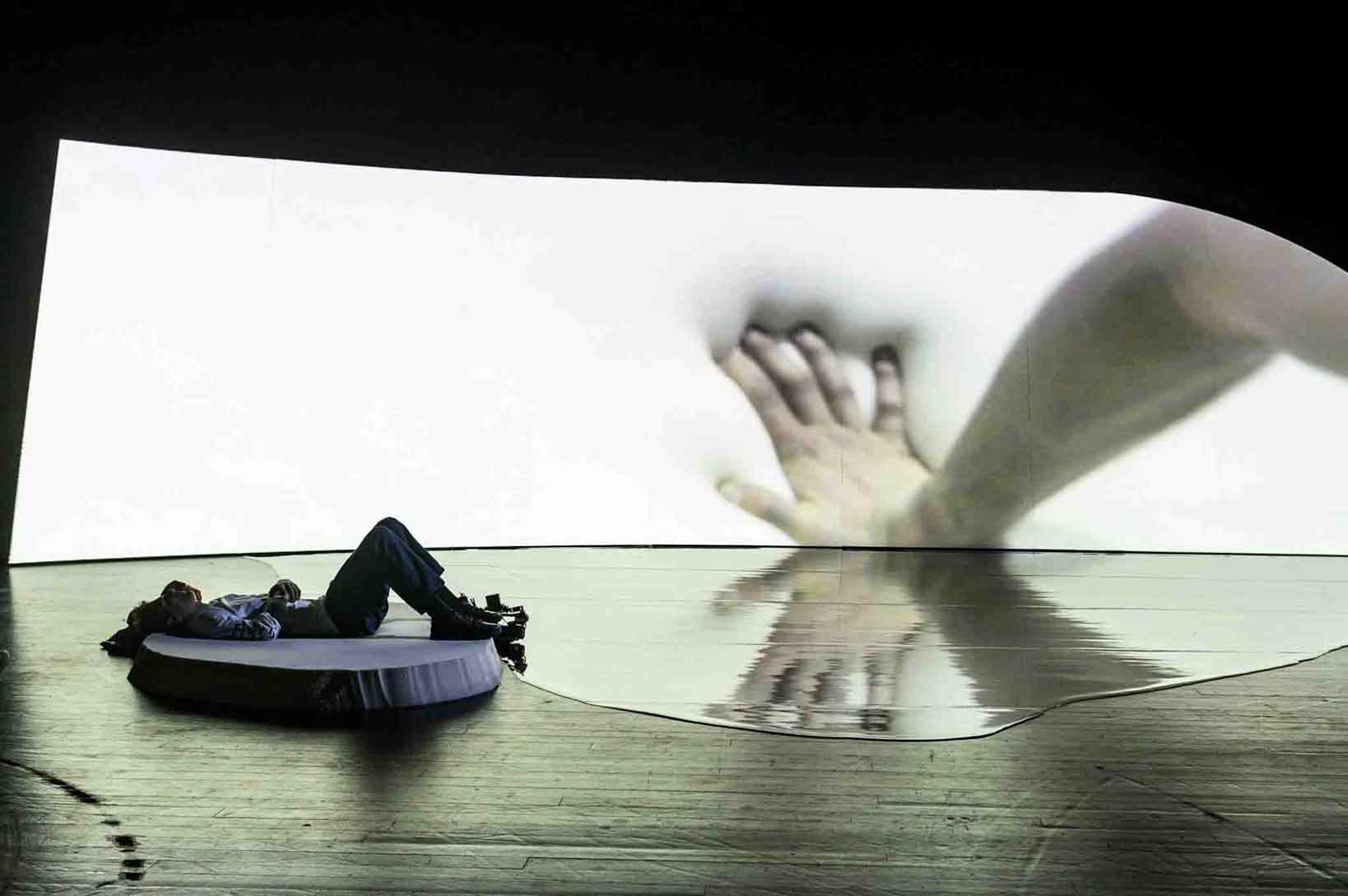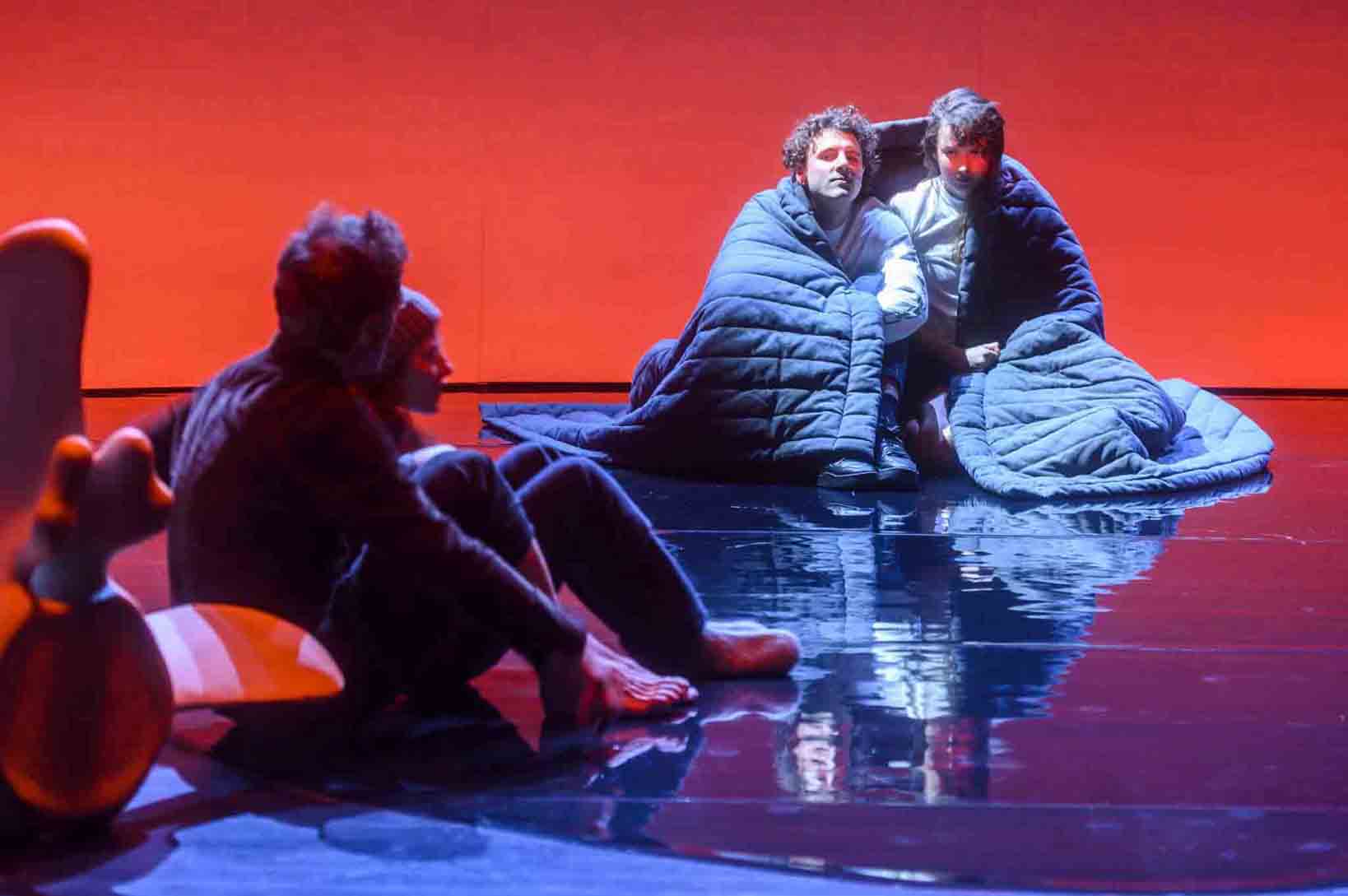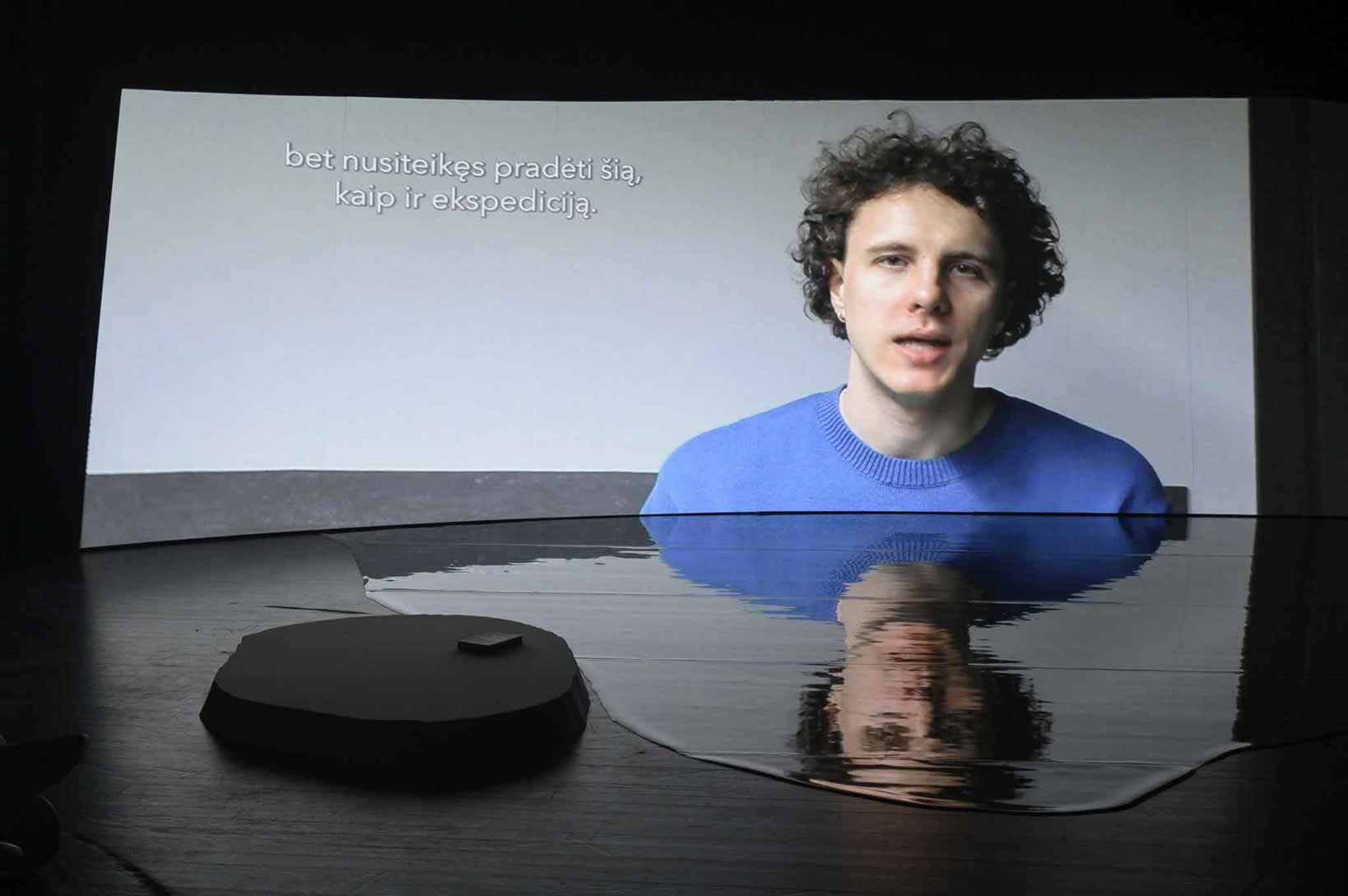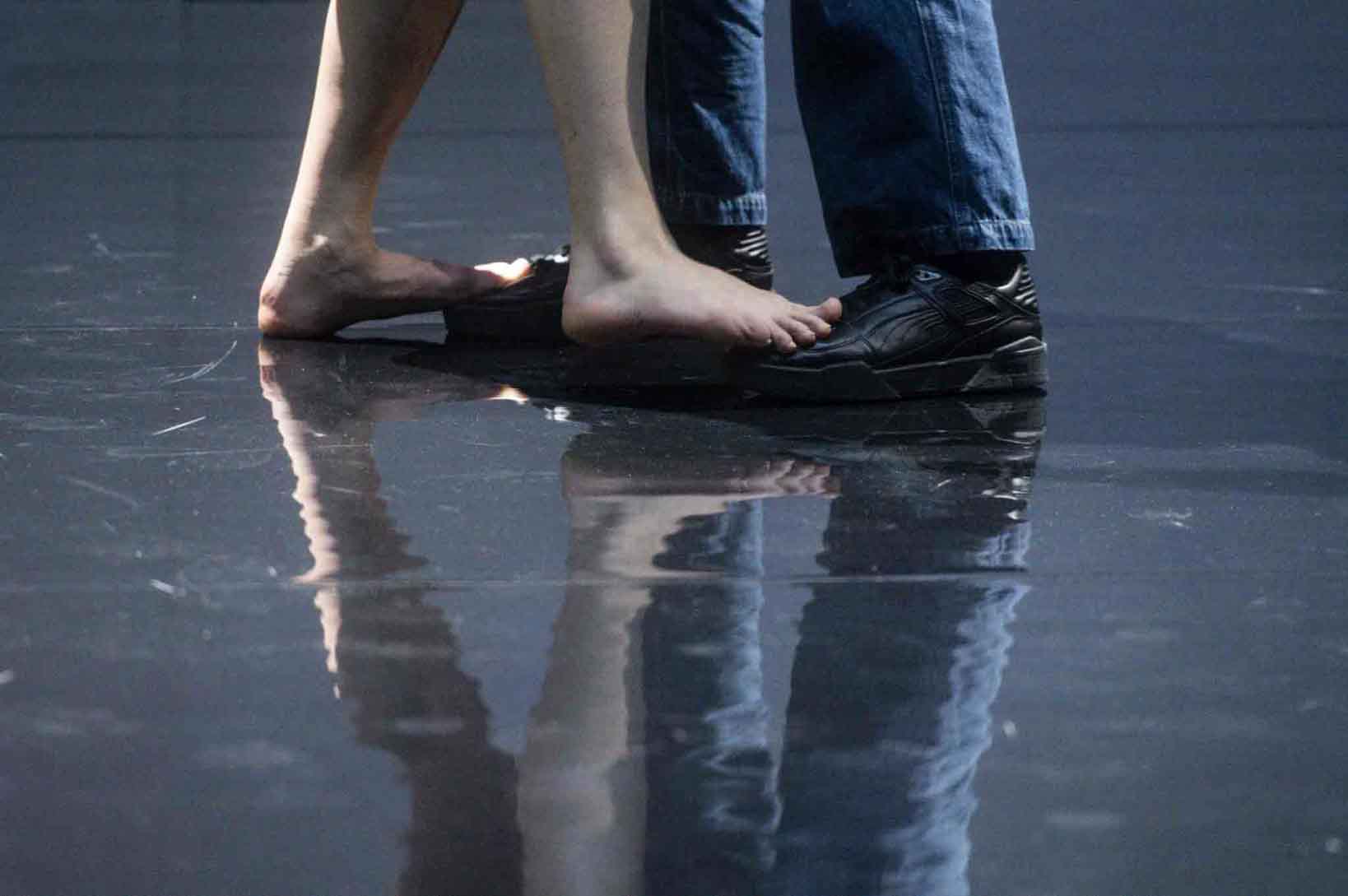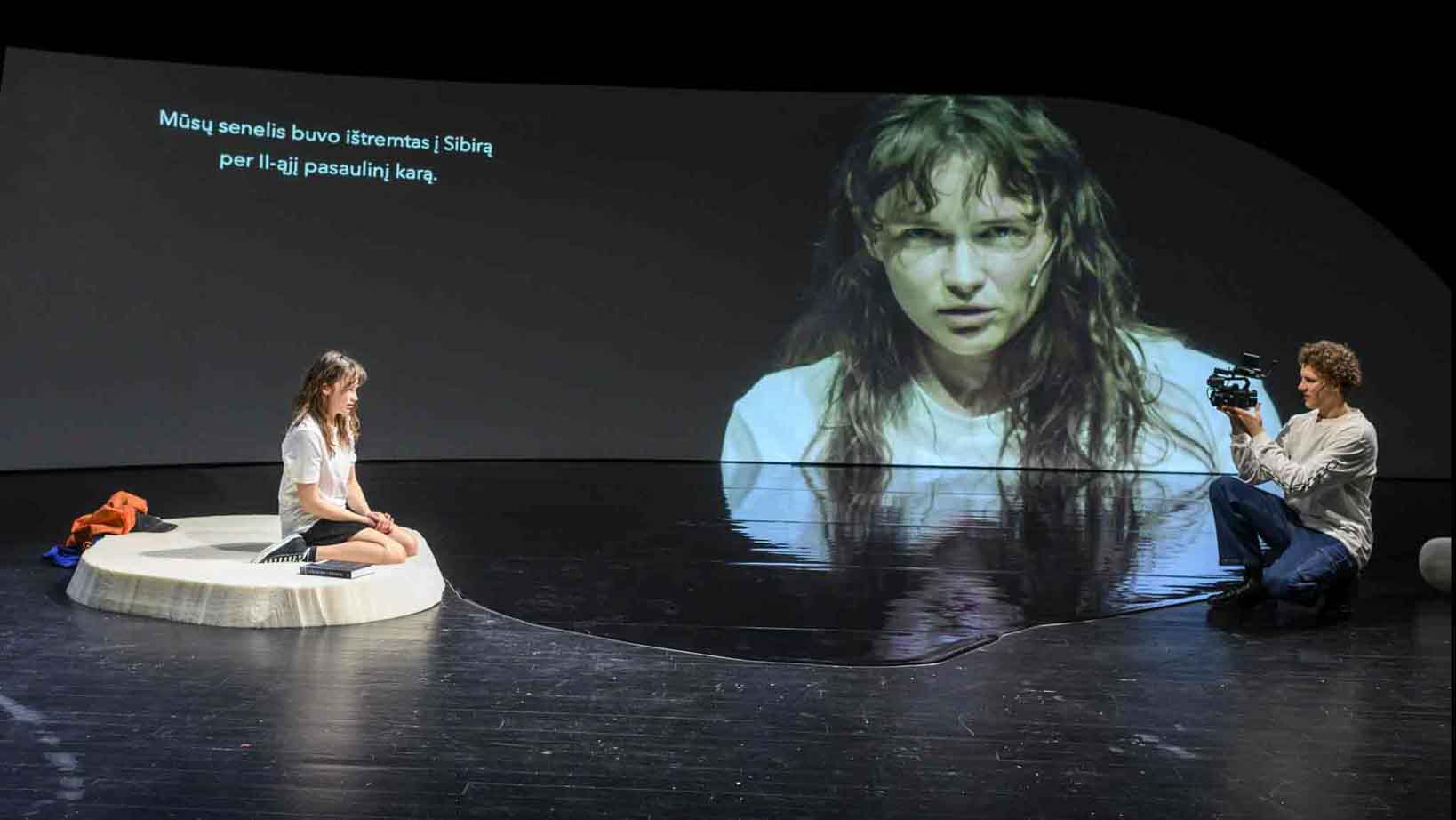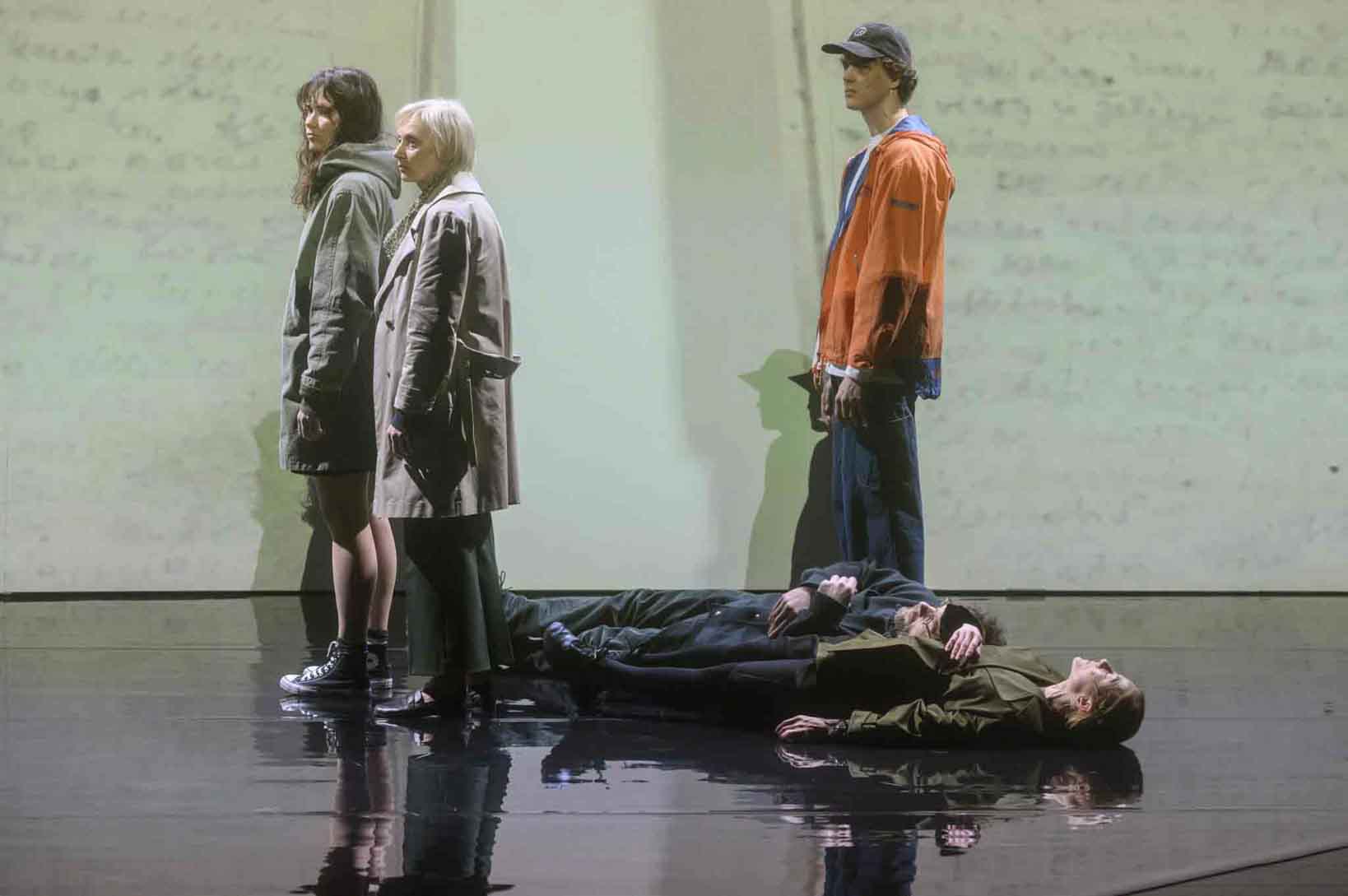Inspired by Dalia Grinkevičiūtėʼs memoirs “Lithuanians at the Laptev Sea”
The deportation of the Lithuanian population, whether families or individuals, to Siberia, is one of our nationʼs most painful experiences, which the young director Eglė Švedkauskaitė – recently awarded the Golden Cross of the Stage, the annual highest award for theatre in Lithuania – takes up from a new point of view.
“This work is a continuation of my consistent exploration of complex events in Lithuanian history. It is an attempt to go deeper beneath the facts to find out in what forms the theme of exile runs through the consciousness of Lithuanians living today and how exile continues to shape our individuality. Does that still cause pain, or has it been transformed?” – Eglė Švedkauskaitė reflects.
The play features a family of four. The son is studying cinema in another country and, after receiving an assignment at the academy to make a documentary film, he begins to delve into his family history. The father is reluctant to share his memories, but when the family receives a call from the museum about the discovery of a manuscript of the father’s auntʼs recollections of the Siberian deportation, the family history begins to unfold on its own.
Although Švedkauskaitė creates a fictional family of characters, she also draws on real facts: in 1991, a jar was accidentally dug up at 60 Perkūno Avenue in Kaunasʼ Žaliakalnis district, where individual pieces of paper containing physician Dalia Grinkevičiūtėʼs memories of Siberia were found. The manuscript was thought to be lost because Grinkevičiūtė herself had tried to look for it several decades ago but had not found it. The unearthed relic brings back the themes of the past.
“In this performance, we aim to portray our desire as young people to talk as openly as possible with our parents, to analyze their experiences and how they have affected us. We are seen as a therapeutic generation who are very keen to talk and resolve our relationship with our parents. It is probably quite natural that, having grown up in a world of open sharing, democracy, and technology, we want to ask very open questions, which is not to the liking of all older people and sometimes even leads to confrontation. The relationship with parents is very important in this performance. Thatʼs why there are three generations in it: to analyze exile not as a disaster that happened to someone long ago, but as an intergenerational trauma that travels from one generation to the next”, – says the director of “Fossilia”.

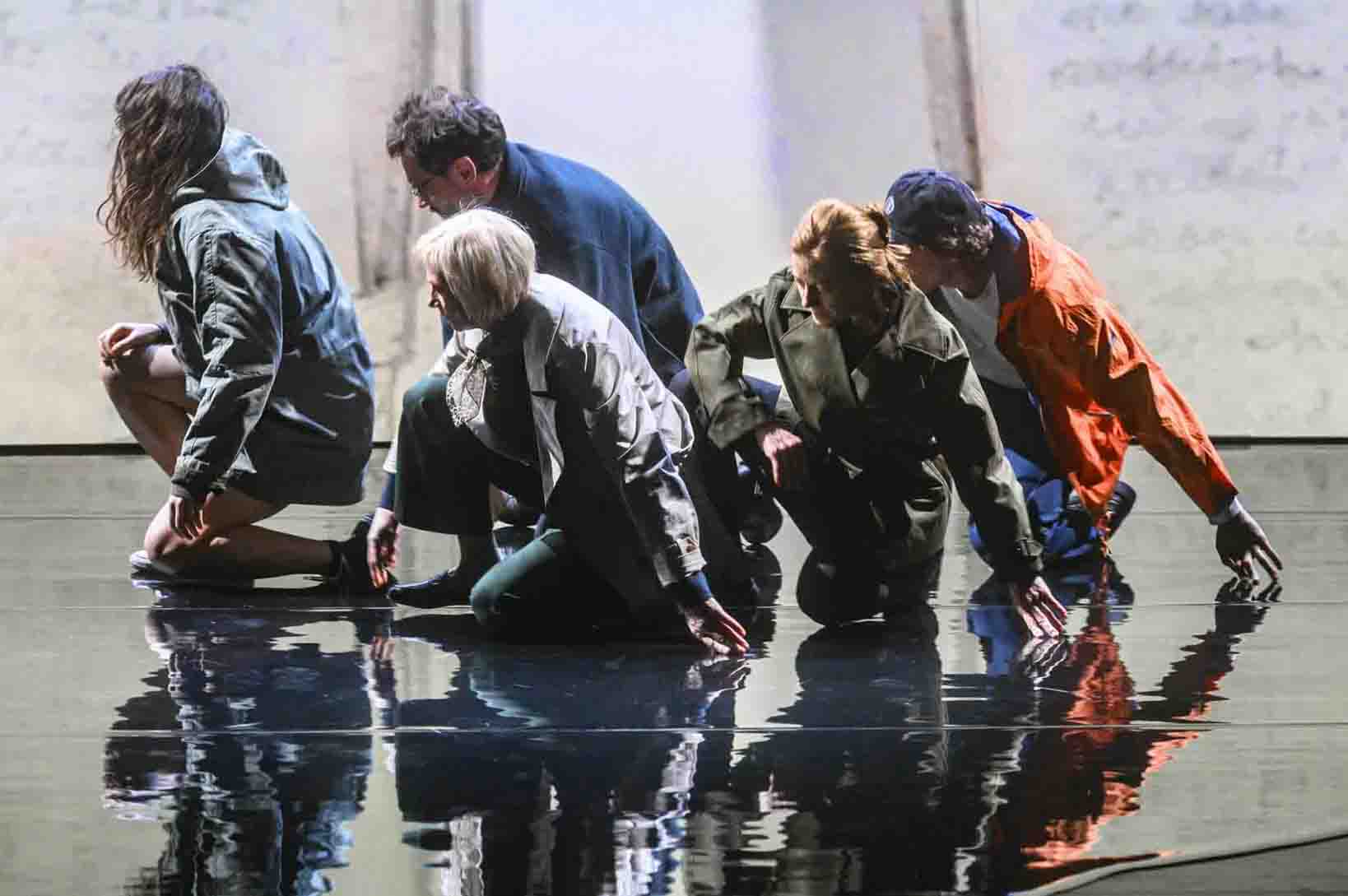

 Back
Back 
